Criticism over £3m public money to failing firm
- Published
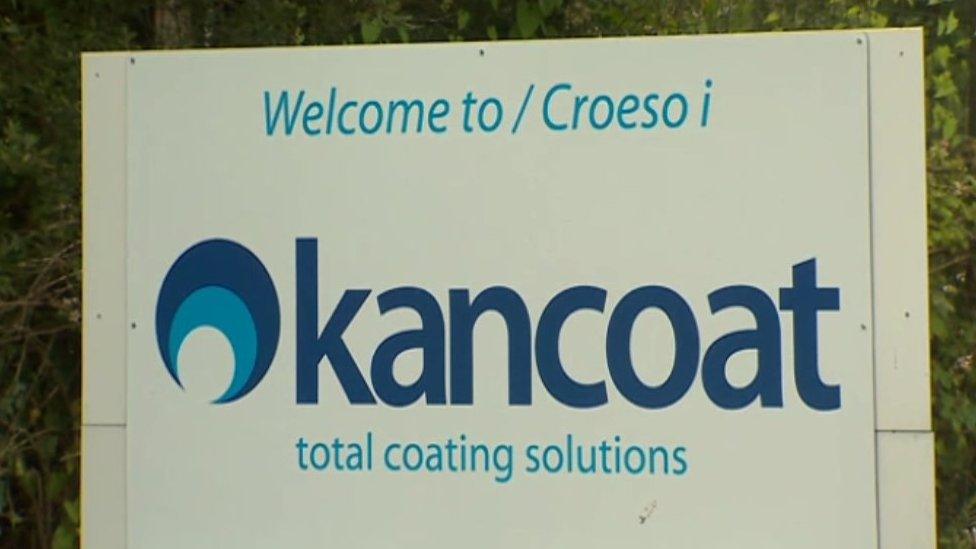
A group of AMs has "serious concerns" over the Welsh Government's decision to invest more than £3m in a Swansea steel-coating company which went bust.
Kancoat was backed despite civil servants warning it had a "weak" business plan and was high risk.
The assembly's Public Accounts Committee (PAC) said ministers "ignored its own due diligence" and "poured good money after bad" into the firm.
The Welsh Government said it had changed its procedures since.
Defending ministers' overall record supporting business, Carwyn Jones told AMs during First Minister's Questions: "There must be an acceptance of risk by government or we wouldn't support anything."
Kancoat, based at the old Alcoa factory in Waunarlwydd, Swansea, was set up to coat metal used to make food cans and other products.
Between May 2012 and February 2014 it was given a mix of loans and grants totalling £3.4m by the Welsh Government.
The bulk of the support was given after the Welsh Government's own financial due-diligence reviewer raised concerns about Kancoat's financial projections in February 2013.
The review said Kancoat's business plan appeared "weak and inconsistent" and the project was identified as high risk.
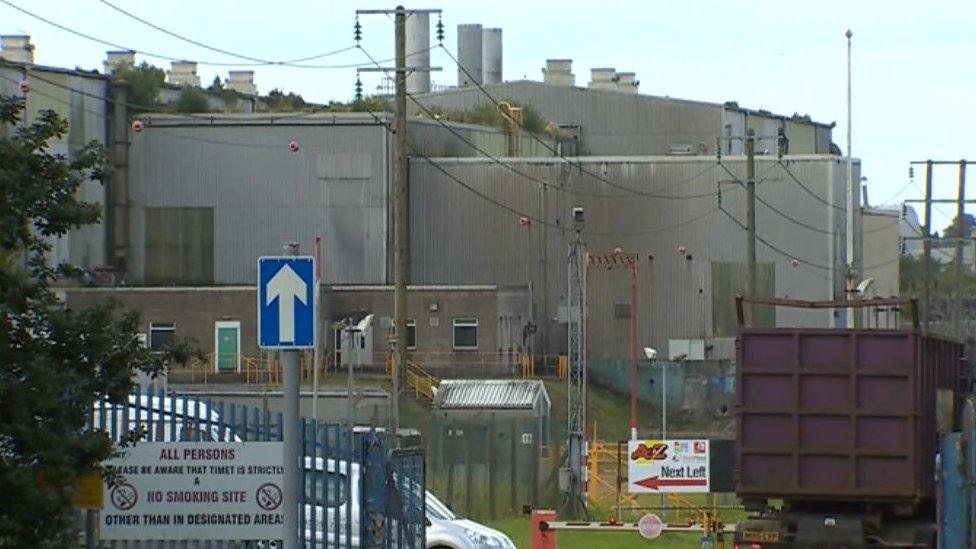
The site in Waunarlwydd where Kancoat was based
A request for support had previously been turned down by the government's investment arm Finance Wales due to an "unacceptably high" risk.
The company went into administration in September 2014.
The PAC report on Tuesday said the government investment "defied its own due diligence" and "failed to recognise or mitigate against a number of potential risks".
The committee "remains unconvinced" the government should have made "even its initial investment".
It said it expected a "much more considered approach to risk identification and mitigation" in future.
The PAC has made several recommendations including:
investment decisions that go against official advice should be clearly documented
the government should produce "updated robust risk identification and mitigation guidance"
the first minister should ensure the ministerial code requires the consideration of perceived conflicts of interests and that the outcome of such consideration should be formally fully documented.
In August 2016 Sir Alistair Graham, a former watchdog on standards in public life, said the then economy minister Edwina Hart had a potential conflict of interest when she approved support for Kancoat, because it was based less than half a mile from her constituency.
The Conservatives later claimed Ms Hart had broken the ministerial code by approving the funding, a charge rejected by the Welsh Government.
Nick Ramsay says the Welsh Government ignored advice
Mr Jones said the code had not been breached because Kancoat was not based in Ms Hart's Gower constituency.
Tuesday's report said the committee did not find "evidence of undue influence" from Edwina Hart but the "potential for a perceived conflict of interest should have been identified".
During the inquiry, a senior civil servant admitted the investment panel which recommended the support "got it wrong".
A Welsh Government spokesman said: "This was a complex case, as was recognised by the previous Welsh Audit Office report.
"As part of our commitment to continuous improvement, we regularly review our procedures and since this case we have implemented a number of key changes."
Welsh Conservative economy spokesman Russell George said the report showed "significant failings" in the government's due diligence process.
"In the spirit of Don Quixote, the investment was made in the face of sound advice and several red flags, resulting in the white elephant we are left with today," he said.
Plaid Cymru's Simon Thomas said the first minister has a "job of work to justify" why he felt the Kancoat project should have been approved by Ms Hart.
"The public accounts committee report makes it clear that its about the perception of interest as well as actual interest that the ministerial code has to deal with," he said.
"I don't think he (Mr Jones) dealt with it appropriately."
Mr Thomas later told AMs that he had been told of allegations by workers at the company that "several directors at the time they were laying off workers were employing themselves for a period of time at a cost of up to £7,000 per month as self-employed consultants or otherwise employed full time with Kancoat".
Responding, Economy Minister Ken Skates said he would "investigate whether the directors of that company stand to benefit at all post the company's collapse".
He also indicated ministers would accept most of the recommendations in the PAC report.
A request for an interview with Mrs Hart was turned down.
- Published14 November 2016
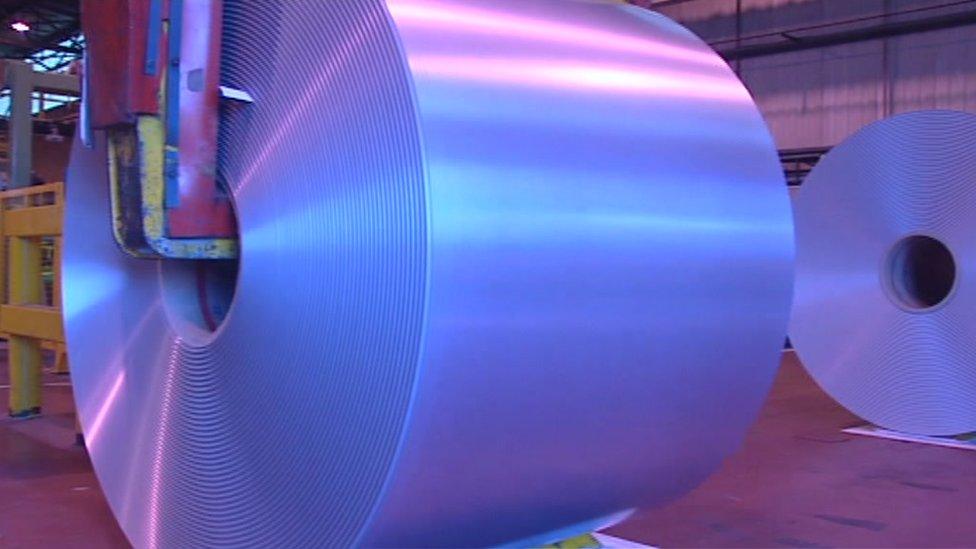
- Published14 July 2016

- Published29 September 2016
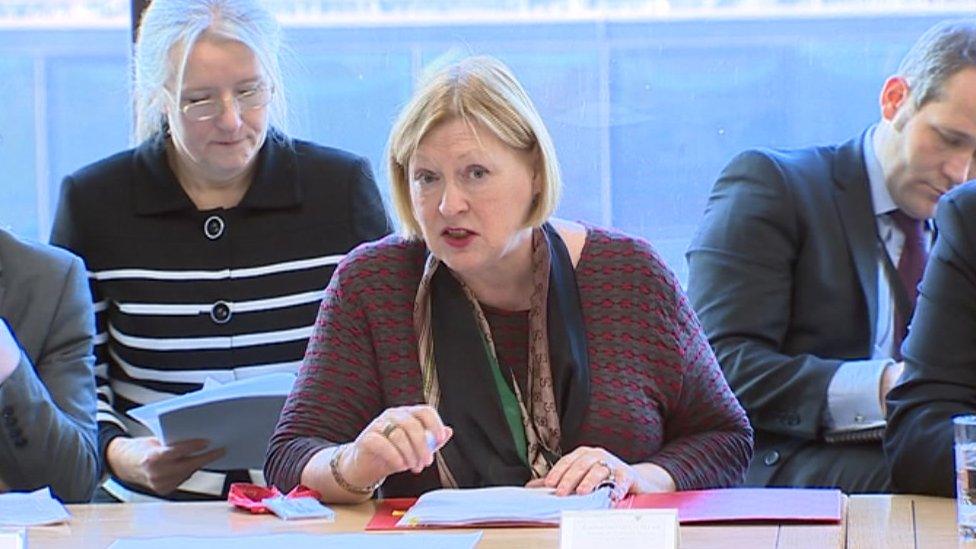
- Published24 August 2016
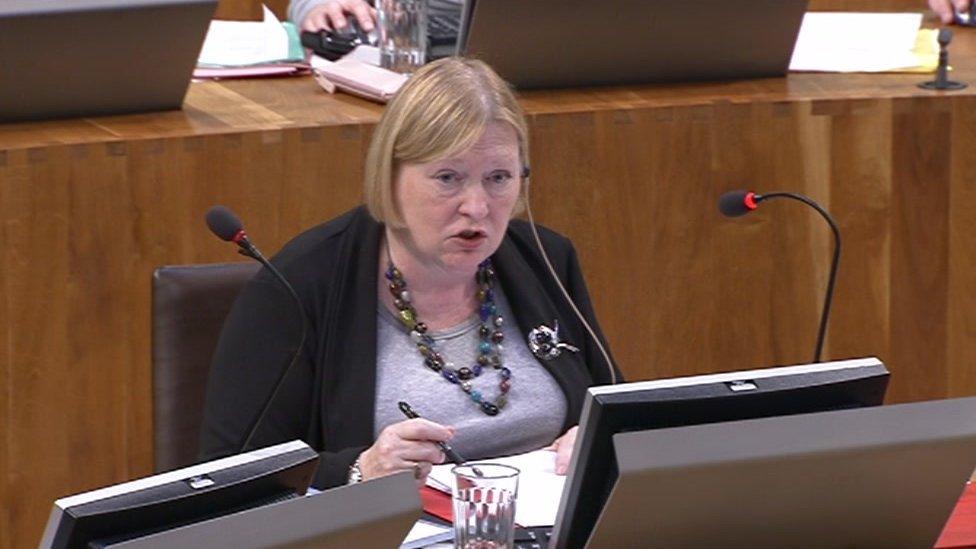
- Published10 March 2016
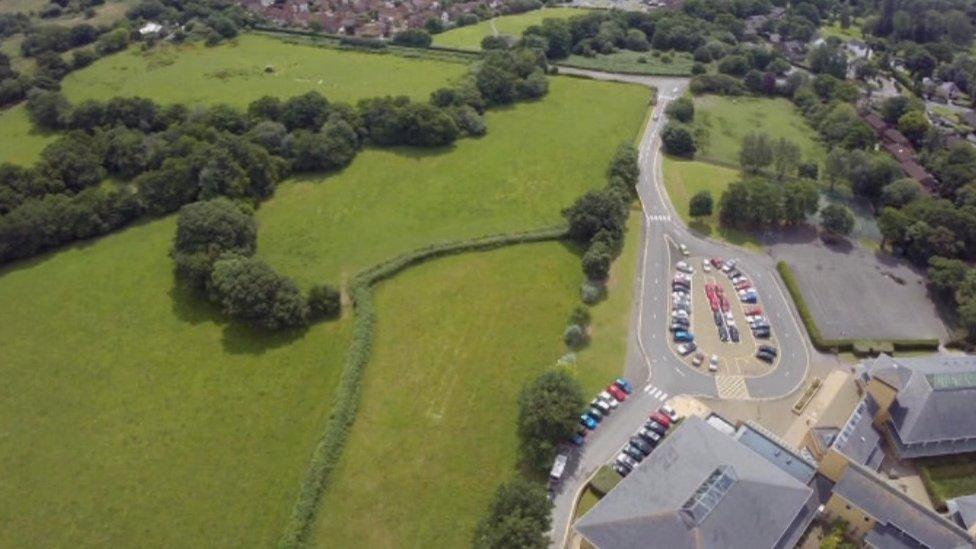
- Published16 September 2015
